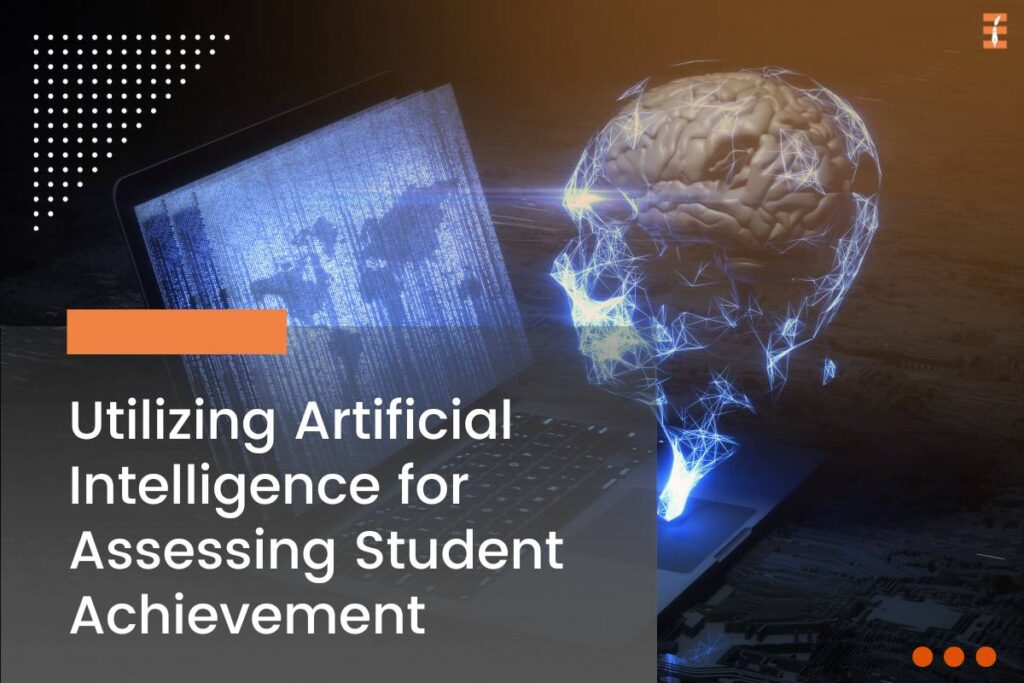In today’s rapidly evolving educational landscape, educators and institutions face increasing pressure to provide personalized learning experiences and assess student performance effectively. With the advent of Artificial Intelligence (AI) technology, the education sector has witnessed a transformative shift in the way educators evaluate student performance. AI-driven assessment tools offer a range of benefits, from real-time feedback to enhanced data-driven insights. In this article, we will explore how educators can harness the power of AI to evaluate student performance, improve learning outcomes, and streamline the assessment process.
Here are 5 roles of AI in student performance:

Artificial Intelligence has made its way into the educational realm, and it’s here to stay. AI-powered tools are designed to mimic human intelligence and have the potential to revolutionize the educational sector by providing valuable insights into student performance. Here are some key ways in which AI is making a difference:
1. Personalized Learning
AI algorithms can analyze individual student data to create personalized learning paths. By tailoring instruction to each student’s strengths and weaknesses, educators can optimize the learning experience.
2. Automation of Administrative Tasks
AI can automate administrative tasks such as grading, allowing educators to focus more on teaching and less on paperwork.
3. Immediate Feedback
AI-powered assessment tools provide instant feedback to students. This real-time feedback helps students identify areas of improvement and make necessary adjustments.
4. Predictive Analytics
AI can analyze historical data to predict future academic performance. This enables early intervention for students who may be at risk of falling behind.
5. Enhanced Data Analysis
AI can process and analyze vast amounts of data, providing educators with insights into trends and patterns that may not be apparent through traditional methods.
AI-Powered Assessment Tools
Now, let’s delve into specific AI-powered assessment tools and strategies that educators can implement to evaluate student performance effectively:
1. Automated Grading Systems
One of the most time-consuming tasks for educators is grading assignments and tests. AI can significantly streamline this process through automated grading systems. These systems use machine learning algorithms to assess student work and provide instant feedback. For multiple-choice questions or standardized tests, AI can provide immediate scores. For written assignments, AI can analyze grammar, style, and content to evaluate student performance. Platforms like Turnitin and Gradescope have gained popularity for their automated grading capabilities.
2. Adaptive Learning Platforms

Adaptive learning platforms use AI to tailor educational content to the specific needs of each student. These platforms continuously assess a student’s performance and adapt the curriculum accordingly. For instance, if a student struggles with a particular concept, the AI system can provide additional resources, exercises, or explanations to reinforce understanding. These platforms are particularly effective in improving student engagement and retention.
3. Chatbots and Virtual Tutors
Chatbots and virtual tutors are AI-powered tools that offer students immediate assistance with their queries and challenges. These virtual assistants are available 24/7 and can provide answers to questions related to coursework, study materials, and assignments. Moreover, they can offer explanations, hints, and guidance to help students overcome learning obstacles. Companies like IBM’s Watson and Duolingo have developed AI chatbots to assist students in various subjects.
4. Intelligent Essay Scoring
Evaluating essays and written assignments can be a daunting task for educators, especially in larger classes. AI-driven essay scoring tools assess the content, organization, style, and grammar of written work. These tools provide not only scores but also detailed feedback, helping students understand their strengths and weaknesses in writing. This approach allows educators to focus on more critical aspects of teaching while ensuring students receive constructive feedback on their writing skills.
5. Speech and Language Processing
AI can be used to assess oral communication skills and language proficiency. Speech recognition technology can analyze pronunciation, fluency, and vocabulary usage. Language processing tools can evaluate written essays, reports, and speeches for clarity, coherence, and effective communication. Such assessments are invaluable for language courses, public speaking classes, and language proficiency exams.
Benefits of Using AI for Student Evaluation

1. Enhanced Efficiency
AI streamlines the assessment process, reducing the time and effort educators spend on grading and administrative tasks. This allows educators to allocate more time to teaching and mentoring students.
2. Objective Evaluation
AI-driven assessments are based on algorithms and data analysis, ensuring that evaluations are objective and consistent. This minimizes potential biases that may arise in human grading.
3. Personalized Feedback
AI can provide students with personalized feedback tailored to their individual strengths and weaknesses. This targeted feedback helps students understand where they need improvement and how to progress.
4. Real-time Insights
AI tools provide educators with real-time data on student performance. This enables early intervention for students who may be struggling, allowing educators to provide timely support.
5. Data-Driven Decision Making
The wealth of data generated by AI assessments allows institutions to make data-driven decisions about curriculum design, teaching methods, and resource allocation.
Challenges and Considerations
While AI offers tremendous potential for improving student evaluation, there are several challenges and considerations that educators and institutions must address:
1. Privacy Concerns
Collecting and analyzing student data must be done with utmost care to protect student privacy. Institutions must have robust data security measures in place.
2. Ethical Implications
The use of AI in education raises ethical questions, particularly in relation to bias in algorithms and the potential for AI to reinforce existing inequalities.
3. Implementation Costs
Integrating AI-powered tools and platforms can be costly. Institutions must weigh the benefits against the financial investment required.
4. Educator Training
Educators need proper training to effectively use AI tools in the classroom and interpret the data they generate.
5. Maintaining Human Interaction
While AI can enhance the learning experience, it should not replace the crucial role of human educators in providing mentorship, guidance, and emotional support to students.
Conclusion
Artificial Intelligence has the potential to revolutionize how educators evaluate student performance. AI-powered assessment tools offer numerous advantages, from personalized learning experiences to streamlined grading processes. As technology continues to advance, it is essential for educators and institutions to harness the power of AI responsibly and ethically. By leveraging AI to evaluate student performance, educators can create more effective, efficient, and personalized learning environments that benefit both students and educators alike.

The Transformative Role Of Technology In Education Today
In the 21st century, the classroom experience has moved forward beyond the classroom experiences and incorporated a wide array of technological tools and resources.

